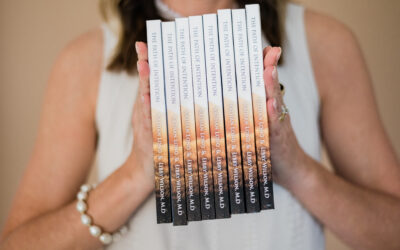If you don’t know where you want to be going then I guess you are on the right path.
The patients I work with, however, do have a specific destination in mind. They desire a place of optimal health and happiness and they aren’t okay with just leaving it to chance, hoping it will all work out.
Me too! I’m very intentional about my life. Not to get too morbid, but the truth is we are all going to die. None of us know when but death is certain. I want to use my days purposely to live my best life. I’ll show you how I do it. Incorporate any of the tips that you think may be helpful for you in creating your best life. It may seem restrictive at first, but I find the opposite to be true. I feel so free knowing I’m headed on my purposeful intentional path prioritizing the things in life that are most important to me. It also keeps me out of the state of overwhelm, feeling that there is so much to do and just not enough time.
Before we dive in, you first have to know what you want. It seems so silly, I know, but this is harder than it may seem. I recommend having measurable goals that you are working towards. Having a vague idea of what you want is very different than having a goal.
It’s good to have a goal because your brain needs direct supervision. We all have a part of our brain (the primitive brain, or the amygdala) that is pretty irrational and demanding at times, compelling you to just do what feels good in the moment. Sometimes these signals from the primitive part of our brain can be so strong and hard to resist. These urges from our brain are somewhat like a toddler in a candy aisle at the store begging for a treat. Staying focused on a goal helps to quiet this irrational toddler inside of us and listen to the more mature frontal part of our brain (the prefrontal cortex). A goal also helps you to create something new for your future, not just continuing to repeat what you have previously created in the past. Goals help you live an intentional, deliberate life
Most people resist making goals for 3 reasons:
- They are uncomfortable. They push us out of our comfort zone. It feels safer to stay stuck in a familiar place than to venture out into the unknown.
- They doubt that can accomplish them.
- They don’t know exactly HOW to make it happen. The truth is knowing how comes from the past. To create something new you need to look to the future. You may not know how yet, but you can figure it out!
In addition to all of the above, I used to resist goals because I feared failure. I used to define failure as trying something one time and not getting it exactly right. As a perfectionist only A+s were acceptable. Now, I look at failure totally differently. Now I view failure as simply not giving up.
Try, learn, adjust, try again and repeat until I get it right. It may take 100 attempts but I only fail if I give up. This philosophy makes me much more willing to try new things and to have my back along the way. I’ve learned that perfectionism kept me stuck and let’s face it: Bs are pretty good too, right?
I recommend having one big goal to work towards. It seems more exciting to have more, but without constraint, we tend to spread ourselves too thin and not feel like we are getting anywhere. Plus in addition to our goals, we have all the day-to-day things we need to do to run our lives. Those are really big priorities too, so how can you fit it all in? How do I accomplish the big goals without neglecting the extremely important day-to-day activities?
I use a tool to plan my day, my week, my year, and my life that I first learned from Life Coach, Brooke Castillo. It’s called Monday Hour One. You can choose to do it anytime, but I choose to do it the first hour of my work week from 8:00 to 9:00 AM every Monday.
Monday hour one is a tool I use to plan my week and create the life I want to live on purpose. Instead of reacting to things that are thrown my way. Here’s how it works:
Step 1: Decide you want to create a life of intention.
TIME is your most valuable resource. HOW do you want to use it?
Step 2: Do a to-do list download.
Each week, in the first hour of your workweek, set a timer for 15 minutes and dump out everything in your brain that needs to be done in the coming week. I include everything from the big projects at work, to the personal goals, to paying the bills, exercising, watering the plants, going to the grocery, and doing the laundry.
Once you think you’ve thought of everything, set the timer for 5 more minutes and ask yourself what else, because you are likely forgetting some things. It’s important to get it all out of your brain because our brains aren’t good at storing information. Trying to store all that needs to be done in your brain leads to overwhelm and poor focus.
Step 3: Schedule it all on the calendar.
First, I schedule time for myself and my family. My family is my most important priority and if I’m not taking care of myself, I’m not doing my best to take care of them. Then I fill in appointments, meetings, and regular occurrences. Then I see what blocks of time are left and I fill in items from the to-do list into these blocks.
At this point, I’m choosing what I want to do and when I want to do it. Usually, it doesn’t all fit in my calendar, so I decide what can be deleted, delegated, or saved for later. I keep a list of things I want to do soon or someday but just don’t have the time for right now.
Step 4: Throw away the to-do list and follow the plan.
You don’t need the to-do list anymore. It’s on the calendar. I decided that I’m a person that shows up for myself like I show up for others. For example, when my daughter needs to be picked up from school, I’m committed to getting her. In the same way, I commit to doing the things I plan to do on my calendar.
I don’t always feel like it at the moment, but I recognize that I chose to put it on my calendar because it is important to me and so I follow through. Since I know I show up for myself (just like I show up when my daughter needs to be picked up from school), once it’s on my calendar, it is as good as done. This frees my brain up from overwhelm and worry because I know it’s all accounted for and it’s as good as done.
Step 5: Celebrate.
In the last hour of my work week, I do something called Friday Hour Done. I look at all I have accomplished. I look at what worked and what didn’t work so I can tweak the plan to make it better for me the following week. If something I planned to do didn’t get done, I can move that task to the following week. This provides me with a sense of closure as I move into a relaxing weekend free of stress and fully focused on rest and relaxation with my family.
The bottom line is that…
Monday Hour One can help you create the life you want to live on purpose. The secret ingredient is time. Time is the most valuable resource and it’s non-renewable.
Choose to use your time wisely and with time and tweaks, you can make a plan like this, perfect for you and your life. If you implement a plan like this and follow through with it, you’ll start to believe you can do anything. Because you can.
You’ve got this!
P.S..
Register for my 12-week program The Energy Accelerator. This program will help you take back your energy and shift from surviving to thriving so that you can invest fully in yourself and your relationships.





